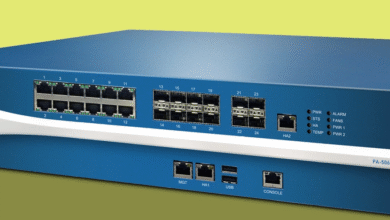
Computing has come a long way since the first computers were developed in the mid-20th century. With advances in technology, we have witnessed a rapid evolution of computing from mainframes to personal computers, smartphones, and the cloud. However, the future of computing holds even more promise as emerging technologies begin to take shape. In this article, we will explore the exciting new technologies that will shape the future of computing.
Emerging Technologies
Emerging technologies refer to new technologies that are currently being developed or are in the early stages of adoption. These technologies have the potential to transform the way we live, work and interact with the world around us. Some of the emerging technologies that are set to revolutionize computing are:
Quantum Computing
Quantum computing is a technology that uses the principles of quantum mechanics to process information. Unlike classical computing, which uses bits that can either be in a state of 0 or 1, quantum computers use quantum bits or qubits, which can exist in multiple states simultaneously. This enables quantum computers to perform calculations at speeds that are exponentially faster than classical computers. Quantum computing has the potential to solve complex problems that are currently impossible to solve with classical computers.
Neuromorphic Computing
Neuromorphic computing is a technology that seeks to emulate the human brain’s neural structure and function. Neuromorphic computing systems use artificial neural networks that are designed to mimic the way the human brain processes information. These systems can learn and adapt to new situations, making them ideal for applications such as image and speech recognition.
Edge Computing
Edge computing is a technology that enables data processing and analysis to be performed closer to the source of the data. With the proliferation of the Internet of Things (IoT) devices, edge computing has become essential to process the massive amounts of data generated by these devices. By processing data closer to the source, edge computing can reduce latency and improve the overall efficiency of data processing.
5G Technology
5G is the fifth generation of wireless technology that promises to revolutionize mobile computing. 5G networks are designed to provide faster data transfer speeds, lower latency, and increased network capacity. With 5G, it will be possible to download large files in seconds, stream high-quality videos without buffering, and support more connected devices simultaneously.
Artificial Intelligence (AI)
Artificial Intelligence (AI) is a technology that enables machines to perform tasks that typically require human intelligence, such as visual perception, speech recognition, and decision-making. AI systems are designed to learn from data and improve their performance over time. AI has the potential to transform many industries, including healthcare, finance, and manufacturing.
Impact of Emerging Technologies
The impact of emerging technologies on computing is expected to be significant. Some of the potential impacts are:
Improved Efficiency
Emerging technologies are designed to improve the efficiency of computing systems. For example, quantum computing can perform calculations that are currently impossible with classical computers, enabling faster and more accurate results. Edge computing can reduce the time it takes to process data, improving the overall efficiency of data processing.
Increased Connectivity
With the adoption of 5G technology, it will be possible to connect more devices to the internet, enabling new applications and services. 5G will also enable faster and more reliable data transfer, improving the overall connectivity of computing systems.
Enhanced Security
Emerging technologies such as quantum computing and AI can be used to improve cybersecurity. Quantum computing can be used to develop new cryptographic techniques that are resistant to hacking, while AI can be used to detect and respond to cyber threats in real-time.
Transformative Applications
Emerging technologies have the potential to transform many industries, including healthcare, finance, and transportation.
Innovative Products and Services
As emerging technologies continue to mature, we can expect to see the emergence of new and innovative products and services. For example, edge computing can enable the development of new IoT devices and services, while quantum computing can be used to develop new materials and drugs.
Job Disruption
Emerging technologies have the potential to disrupt traditional jobs and industries. For example, AI and automation can replace jobs that are repetitive or dangerous, while edge computing can enable remote work and reduce the need for physical offices.
Challenges and Concerns
Despite the potential benefits of emerging technologies, there are also challenges and concerns that need to be addressed. Some of these challenges include:
Privacy and Security
As emerging technologies enable the collection and processing of vast amounts of data, there are concerns about privacy and security. There is a need to ensure that data is collected and processed in a secure and ethical manner.
Ethical Implications
Emerging technologies such as AI raise ethical concerns about the impact on society and the potential for bias and discrimination. It is essential to address these concerns and ensure that emerging technologies are developed and used in a responsible and ethical manner.
Infrastructure Requirements
Emerging technologies such as 5G and quantum computing require significant infrastructure investments. There is a need to ensure that the necessary infrastructure is in place to support the adoption of these technologies.
Read More:5 Essential Tips for Maintaining Your Computer Performance
Conclusion
The future of computing is exciting and full of promise, thanks to emerging technologies such as quantum computing, neuromorphic computing, edge computing, 5G, and AI. These technologies have the potential to transform the way we live, work, and interact with the world around us. However, there are also challenges and concerns that need to be addressed to ensure that these technologies are developed and used in a responsible and ethical manner.
FAQs
- What is quantum computing, and how does it differ from classical computing?
- What is the potential impact of edge computing on data processing?
- How can emerging technologies improve cybersecurity?
- What are the ethical implications of AI?
- What infrastructure investments are required to support the adoption of emerging technologies?












One Comment